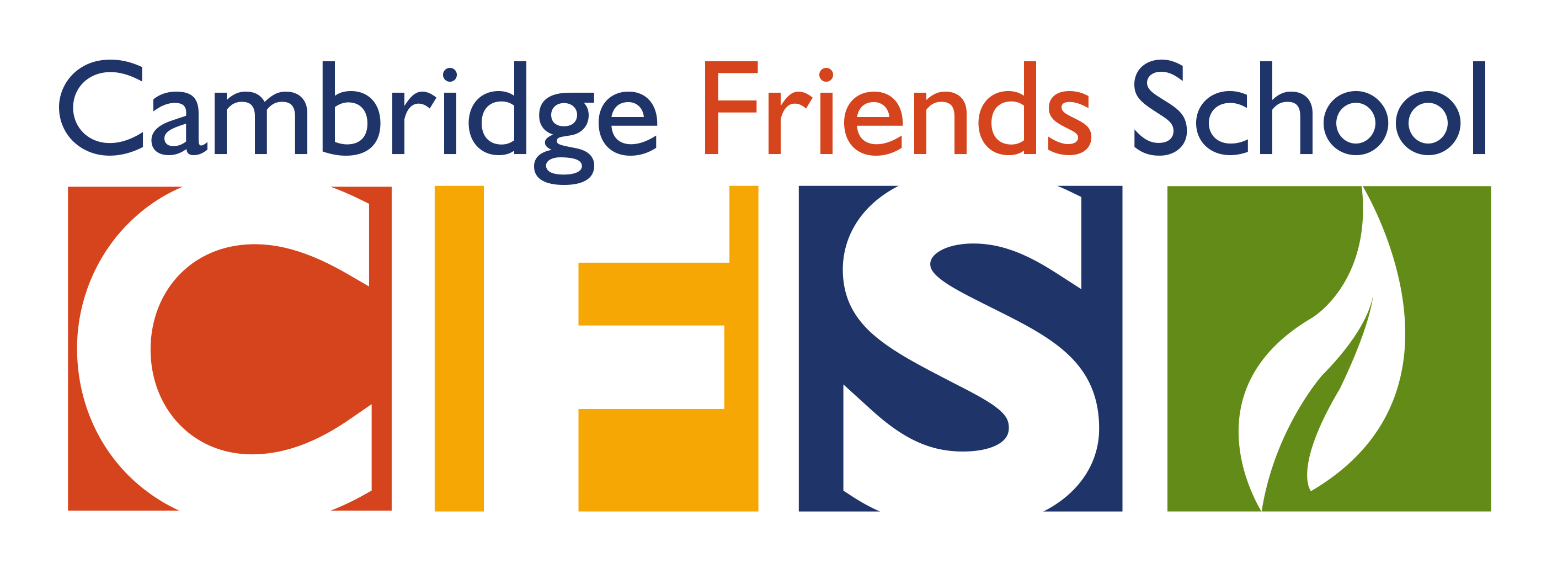Deep—and Fun—Learning
October 31, 2025
As a lecturer on applied statistics, disability rights, and early childhood education at Harvard Graduate School of Education, a former practitioner in early education spaces for decades, and the mother of two small active boys, Dr. Hadas Eidelman first visited 5 Cadbury Road eight years ago and she brought a practiced eye to Cambridge Friends School. “Such a good day!” she remembers, beaming. Her sons are now seventh and third grade students at CFS, and Hadas’s enthusiasm and appreciation have not dwindled: “I love this school!
“I remember going into that [pre-school] classroom—and I have worked in so many childhood centers and my children were in many different classrooms—and when I first experienced that classroom, it rivaled the best practices I’ve ever seen in terms of pedagogy and how to engage with kids.”
She noticed best practices like interdisciplinary instruction, a hallmark of a Cambridge Friends School education. She’d witnessed how different modalities; “multiple means of engagement” were offered to young learners and, from her disabilities research, Hadas knew that “if you give kids different options to creatively engage with material, they’re going to learn better. Not just the kids who might need that accommodation, but all the kids.” She’d recognized academic rigor; she identified “high level stuff” when very young students engaged with their classmates about their problem-solving strategies to be meta-cognition, i.e. when a student is invited to reflect on their own problem-solving process.
This savvy mother loved that each early-childhood classroom is equipped with a swing and a climbing wall: “These are all things that are amazing for kids’ self-regulation. But they also speak to the kids of, ‘Your needs are going to be met here. We’ve got a big soft mat, and a climbing structure, and a swing. You’re not expected to go all day sort of sitting down and being proper. We understand that your body needs to do the things that your body needs to do.’ And that respect is then mirrored back.” Most of all, Dr. Eidelman saw fun! Pedagogically-informed, well-equipped with age-appropriate-materials and learning-tools fun. “Fun induces deep learning.”
What else did she notice that first visit? “The kids are so nice here! They’re so, kind of calm!” But later she realized why: “The [school’s] culture functions through the Quaker values. That’s why those kids were so calm and kind, right? Because their actual needs were being met, and because they had a real sense of belonging and being a part of the work of the school.” She referenced the six “SPICES” values held dear in Quaker spaces like CFS: “Simplicity, Peace, Integrity, Community, Equality, Stewardship.”
On her first visit, she’d experienced that C immediately. The woman giving the tour, although an Admission Office administrator, not a teacher, knew all the children’s names and interacted with them throughout the tour. “That just spoke to me; this feeling of community. She literally knew every child’s name and was completely aware of what was happening in the classroom, and asking for updates on student work. It was so respectful,” she marvels. “And it was just the way the school works!” A gifted and erudite educator, Hadas sees this sense of community through a pedagogical lens: “There’s so much emphasis on this sense of self and responsibility to others in their K-8 or Pre-8, they’re not just being in charge of themselves and their learning, but being a part of a bigger structure that holds everybody’s learning. And later they’re able to keep that focus; they’re able to navigate really complicated social landscapes.”
Eight years later, Hadas touts one of many “all-school things” she and her sons currently enjoy: “Once a month, the whole community—teachers, kids, parents if they can—gets together and sings wonderful songs about peace, about kindness, and about respect for the earth. We sing together. And it really speaks to—I’ve seen amazing things over the last eight years!”
